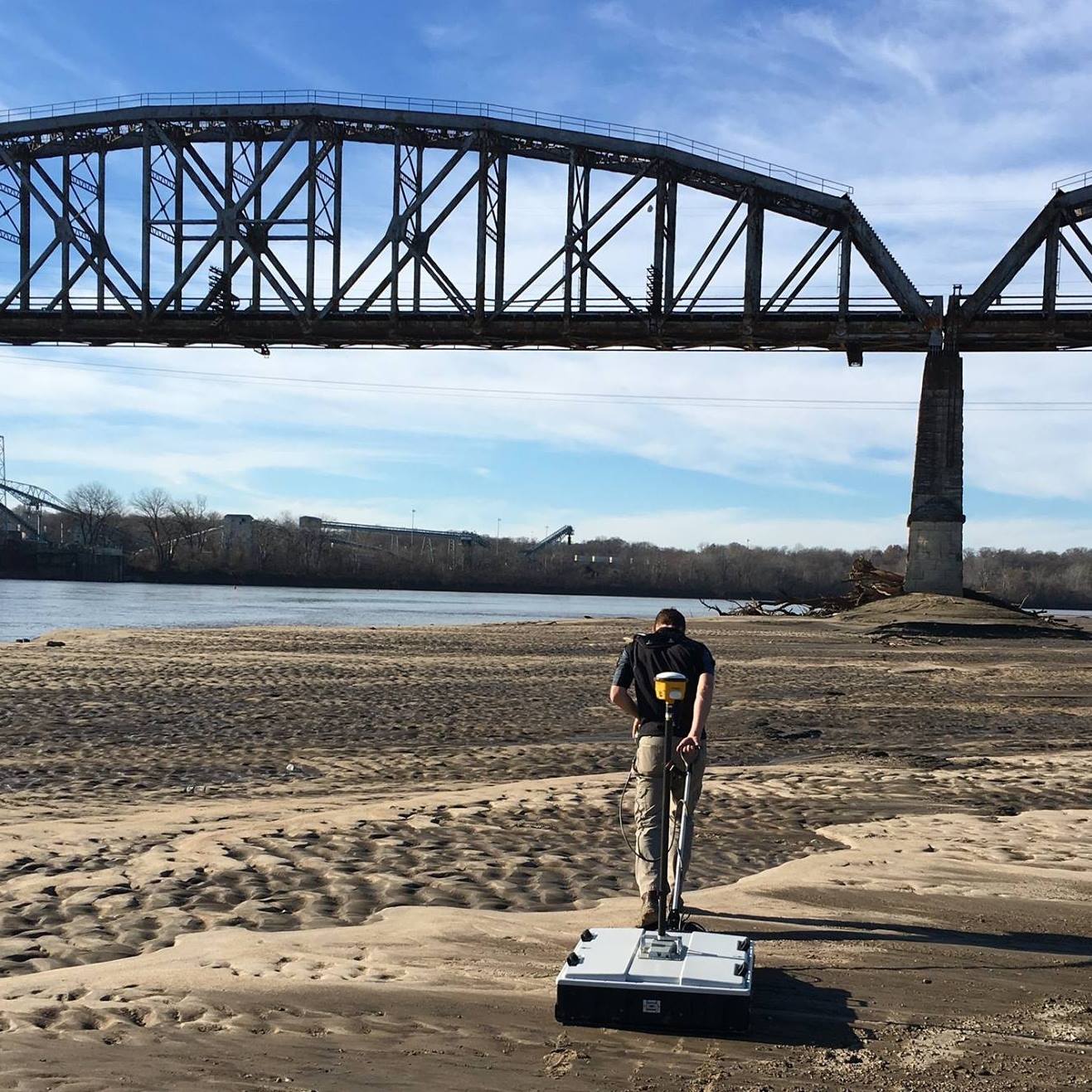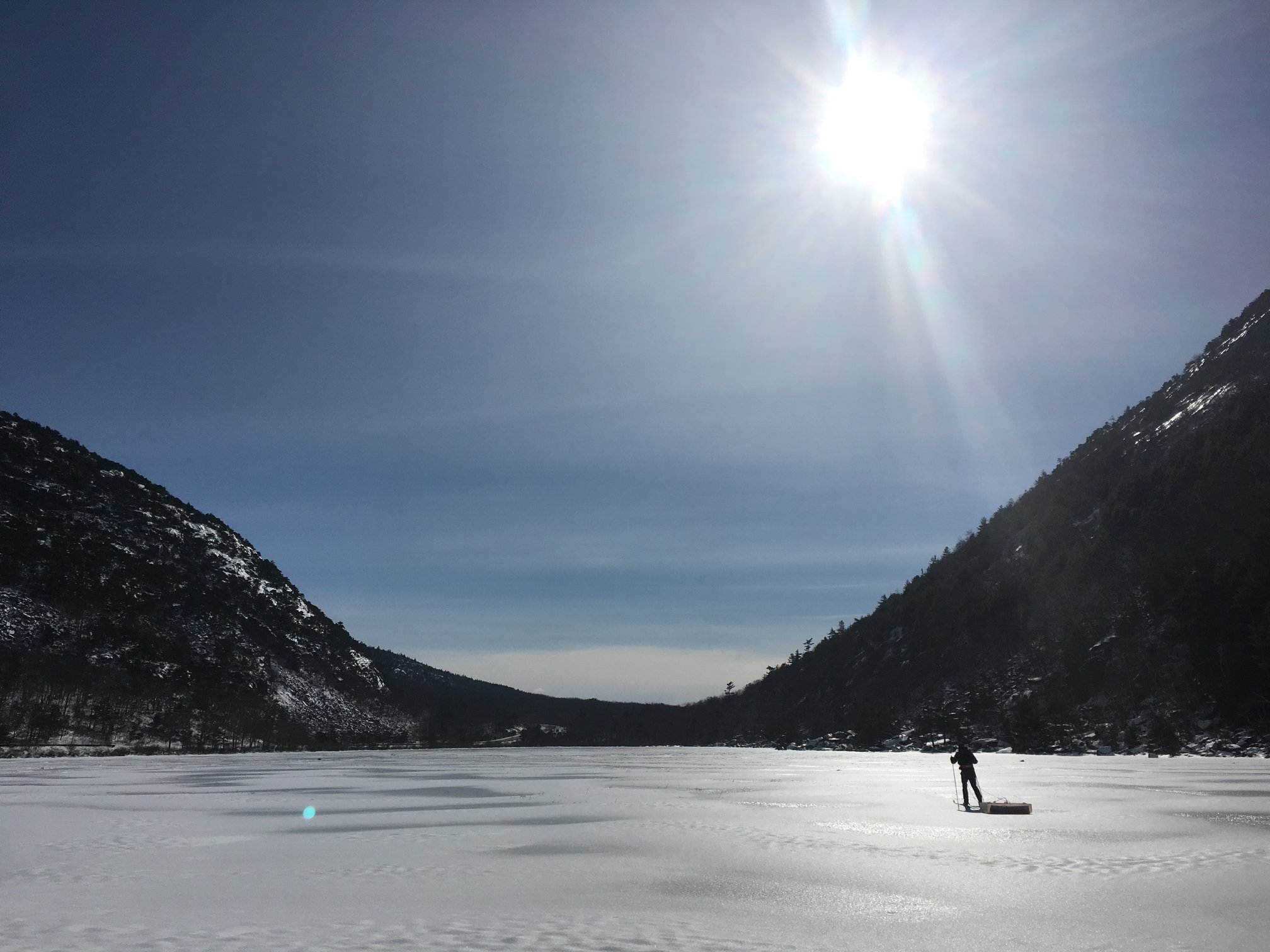User:Ian
| Ian Nesbitt | |
|---|---|
| Hometown | Williamstown, MA |
| Alma mater | Williams College |
| Undergraduate degree | Geosciences (B.A., 2013) |
| Web presence | iannesbitt.org |
| Favorite food | Annie's mac and cheese |
| Favorite rock formation | Cheshire Quartzite |
| Longest ski | 55 km (34 mi, 3:24:44) |
| Longest run | 50 km (31 mi, 4:31:42) |
| Longest bike ride | 177 km (110 mi, 6:37:52) |
| Proudest athletic
achievement |
1st place, 2012 Bretton
Woods Nordic Marathon |
Ian Nesbitt was born in Williamstown, MA in November of 1990. He spent most of his youngest years outdoors playing in puddles on the sides of the road where he grew up. Ian's parents nicknamed him "Hydro Ian" after he developed an interest in walking around the block after rainstorms, diverting rivulets of water with pebbles and sand. His formative years were also spent outside, running, cycling, and Nordic skiing through the Green and White Mountain regions of New England, where he began to question how these landscapes came to their present (beautiful) configuration.
Contents
Interests
- Earth surface processes
- Geomorphology
- Computational geodynamics & fluid dynamics
- Glacial geology
- Limnogeology
- Geophysics
- Ground-penetrating radar
- Side-scan sonar
- Structure from motion
- LiDAR
- Active- and passive-source seismology
- Geophysical computational methods
- Signal processing
- Finite element / continuum mechanical modeling
- Smoothed particle hydrodynamics
- Open-source software
- Languages
- Python
- Ruby
- bash scripting
- Web frameworks
- django
- ruby-on-rails
- Operating systems
- Arch Linux
- Ubuntu
- Raspbian / Debian
- Languages
- Endurance sports
- Nordic skiing
- Backcountry skiing
- Ultramarathon
- Road cycling
Secondary and Postsecondary Education
Ian had the privilege of attending Holderness School, where he earned a reputation as the school's most rabid endurance athlete. He also got his first exposure to geographical information systems (GIS) and geography, focusing a senior honors thesis project on mapping and analyzing the school's ski trails in ArcGIS.
After graduating with Honors from Holderness, Ian attended Williams College, where he majored in Geosciences, wrote an undergraduate Honors thesis, competed for the school's NCAA Division I Nordic ski team, and was the treasurer and root administrator for the college's volunteer-run student services website, WSO.
Ian graduated from Williams with Honors and a B.A. in Geosciences in 2013.
Early Career
After graduating college, Ian spent one season as the assistant coach of the St. Michael's College Nordic ski team in Colchester, VT.
Following his tenure at St. Michael's, he was hired by e4sciences, a geophysical and engineering consulting firm located in Sandy Hook, CT. Under the mentorship of the late Dr. William Murphy III and Dr. Daniel Rosales, Ian learned many geophysical field methods including sub-bottom seismic, side-scan sonar, ground-penetrating radar, mobile LiDAR, and 3-dimensional acoustic imaging. In little over a year, Ian earned the position of Field Manager for both land and water operations at e4. He learned to pilot survey vessels up to 18 m (60 ft) in all weather and traffic conditions in the New York/New Jersey Harbor region, earning enough ship hours to be certified to pilot near-coastal vessels up to 91 metric tons (100 short tons).
Graduate Study at UMaine
In 2017, after more than 3 years at e4sciences, Dr. Seth Campbell offered Ian the opportunity to work on a project investigating the stratigraphy of lake sediments in Maine lakes using ground-penetrating radar (GPR). The project aims to quantify the volume of sediment delivered to lake bottoms in Maine since the state emerged from the Laurentide Ice Sheet more than 12,000 years ago.
In the spring of 2018, Ian was part of a Geodynamics course project modeling glacial erosion in the coastal St. Elias region of Alaska, both in the present-day and over the last 115,000 years.
In the spring of 2019, Ian is enrolled in the Geodynamics Group's Computational Fluid Dynamics course and is developing an open-access teaching module regarding viscosity and transitions to turbulence.
Ian is one of the Geodynamics Group's several open-source software advocates (i.e. an annoying Linux user who talks about Python a lot) and is on-and-off working on developing Python software to read, plot, and translate closed-source Geophysical Survey Systems Incorporated (GSSI) ground-penetrating radar files.
Other Work
Ian works part-time as a technical support specialist and software developer for Raspberry Shake, a company that produces seismology products and advocates for seismological education and citizen science.


